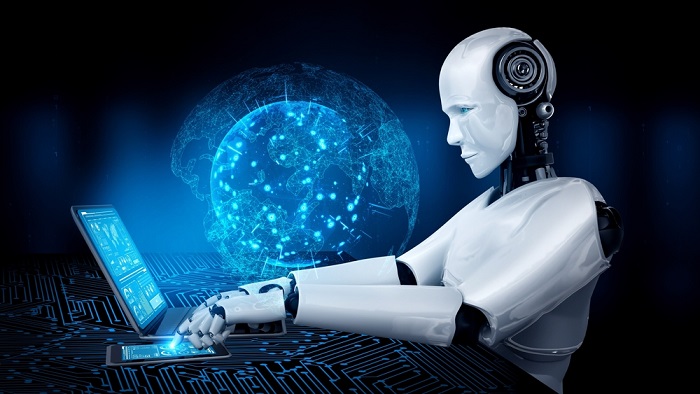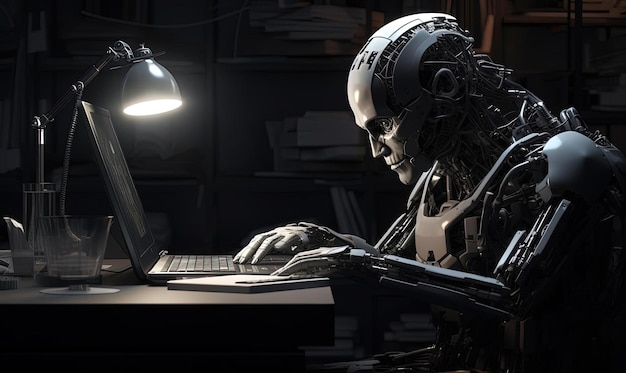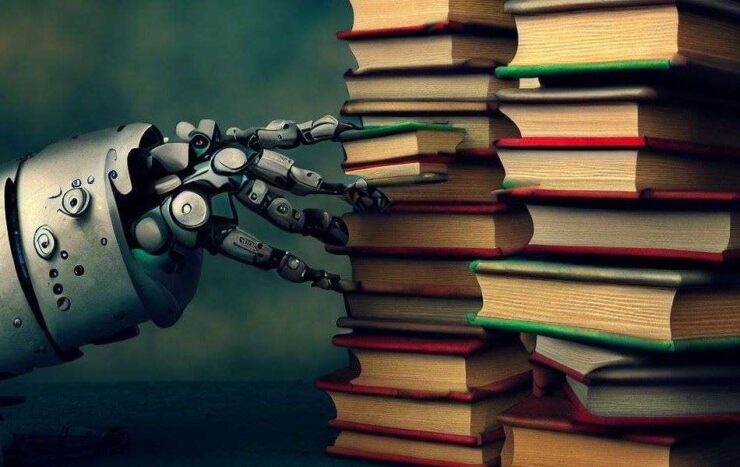AI is everywhere. It’s in your phone, your shopping apps, and yes, even in the articles you read. But does it truly capture the heart and soul of human creativity? Many argue that artificial writing lacks the warmth of a personal touch, leaving readers wondering if it’s possible for machines to really “get” us. Let’s explore if artificial content can match human artistry or if it’s destined to feel robotic forever.
Key Points
- Artificial writing lacks human nuance, making emotional resonance challenging.
- Studies reveal AI content performs well in data-heavy contexts.
- Readers often spot a lack of originality in machine-generated material.
- Tools like chat gpt detector help identify artificially created work.
- Emotion-rich narratives remain a strength of human creators.
The Robot’s Take on Creativity

Machines might crunch numbers and generate text faster than a caffeine-fueled writer, but can they weave a story that hits you in the gut? Experts say no, and it’s easy to see why. Humans write with passion, drawing on life experiences to create something meaningful. Artificial intelligence doesn’t feel love, loss, or the bittersweet moments of life.
The output of artificial writing often reads as functional—good for instructions but lousy for poetry. According to a 2022 study by OpenAI researchers, artificial text can mimic certain patterns of human writing, yet it struggles to evoke deep feelings. Readers pick up on this, describing artificial content as flat or uninspired.
Humans connect over shared experiences, which makes emotional depth hard for artificial writing. Storytelling, for instance, needs raw emotions that a machine can’t replicate. If you’ve ever read something and felt “meh,” it might have been generated by AI.
How Tools Keep Writers Honest
Worried about being duped by artificial content? That’s where ZeroGPT steps in. Their chat gpt detector helps spot writing generated by machines. The tool analyzes sentence structure, tone, and phrasing to flag artificial content.
Imagine hiring someone to write heartfelt vows for your wedding, only to discover later that they used a machine. Ouch, right? Tools ensure authenticity, especially in creative fields where emotion matters. Regular use of tools like the chat gpt detector can save you from artificial content mishaps.
When Machines Get It Right
Not everything written by machines is a dud. AI shines when the focus is on speed, efficiency, or data-heavy subjects. For example:
- Summarizing Long Reports – Machines can condense complex material into digestible chunks.
- Customer Service Scripts – Quick, clear responses keep customers happy without much creativity.
- Technical Documentation – Machines excel in areas where precision beats personality.
That said, once human creativity is needed, artificial writing often falls short. Machines can’t improvise or inject wit. Even the most advanced AI tools lack the ability to surprise you with an unexpected but perfectly timed joke.
Why Emotion Matters in Writing

Good writing isn’t just about grammar; it’s about connection. Humans write to share stories, challenge ideas, or comfort one another. The lack of emotion in artificial writing makes it hard to feel truly understood.
For instance, when you’re reading a novel, it’s the emotional depth that makes characters feel real. The absence of that depth leaves readers unengaged. A recent study published in Scientific American highlighted that readers overwhelmingly prefer emotionally driven stories over purely factual accounts. Machines generate words, but it takes a person to create meaning.
Think of it like a homemade lasagna versus a microwave dinner. Both will fill you up, but only one leaves you craving more. Artificial writing might be efficient, but human writing lingers in your mind long after you’re done reading.
Can Machines Learn Emotion?
AI has improved rapidly, and researchers are teaching machines to mimic emotional tones. However, emotional mimicry isn’t the same as genuine creativity. A machine might include phrases that sound comforting, but it doesn’t actually “feel” anything.
Chat gpt detector make it easier to spot the difference. As advanced as artificial intelligence becomes, it will always rely on algorithms. Emotion isn’t programmable; it’s experienced. That’s the key difference between humans and machines.
Why Human Writing Still Feels Superior
Human writing taps into individuality, bringing unique perspectives and quirks to the table. It’s not just about stringing words together but also about the writer’s voice. Machines, no matter how advanced, produce content that feels generic. Readers value originality, and that’s something machines can’t replicate.
Readers also trust human creators more because of their authenticity. Personal anecdotes, cultural references, and humor are all hallmarks of human-written material. Artificial content lacks the spontaneity and imperfections that make writing relatable.
What the Future Holds for Artificial Content

The gap between human and machine-generated content may narrow, but total parity seems far off. Researchers continue to push boundaries, teaching machines to mimic emotional tones better. Still, authenticity remains elusive.
Meanwhile, tools like chat gpt detector ensure that readers and writers stay ahead of the curve. As AI advances, understanding its limitations will help maintain a balance between convenience and genuine creativity. Human input will remain essential to producing meaningful and impactful content.
FAQ
1. Can artificial writing replace human creativity?
Not entirely. Machines work well for tasks needing speed and precision, but they can’t match human emotion or originality.
2. How do I know if something was created by artificial intelligence?
Using tools like chat gpt detector can help identify machine-generated content.
3. Are there benefits to artificial writing?
Yes, especially in technical or data-heavy areas. It’s efficient for summaries, instructions, and reports.
4. Why does artificial content feel flat?
Machines can replicate patterns but lack human experiences. That’s why the emotional element often feels missing.
5. Will artificial intelligence ever match human creativity?
Unlikely. Machines can improve, but creativity stems from human emotion, which is beyond artificial intelligence.
The Final Word
Artificial writing may excel at saving time and automating tasks, but it will always lack the nuance that makes human writing special. Tools like chat gpt detector give readers the power to identify artificial content, preserving authenticity in creative fields.
Machines can write the words, but only humans can make them matter.

